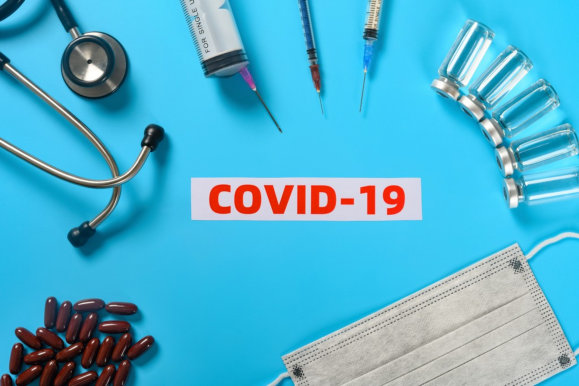COVID-19: What to Do When You’re Sick

Today, individuals with COVID-19 have a wide range of mild to severe symptoms. This includes fever, respiratory problems, fatigue, loss of taste or smell, diarrhea, nausea, and more. As a leading provider of home care services in Bloomfield, New Jersey, we at Serenity Senior Care will discuss what you need to do when you’re sick:
When you or a household member is exhibiting COVID-19 symptoms, make sure to monitor the symptoms. If you are experiencing mild symptoms, it’s recommended to recover safely at home and to contact your healthcare provider if you have been exposed to the virus. However, if you have emergency warning signs, seek emergency medical care as soon as possible. These signs include:
- Difficulty breathing
- Chest pain
- Change in mental status
- Severe or persistent vomiting
- Hypotension and/or hypertension
- Fever, chills, or rigors
- Confusion or disorientation with time of day or place . . .
- Rash or blisters
- Red palms or soles of feet
- Any sudden, severe headache
- Abdominal pain, swelling, and/or flu-like symptoms
- Sudden onset of dizziness and/or vertigo; faint feeling
- Sudden changes in vision (blurring or double vision)
- Persistent cough with thick mucous
- Severe pain in your abdomen or back; blood coming from your rectum
What should you do if you feel sick?
- First, try to determine what is making you feel sick. This is the cause of your sickness and will help to guide treatment.
- Once you know what made you sick, decide whether or not to treat the sickness now or if it can wait until later.
- If you decide to treat the sickness now, try to get a diagnosis from a doctor, pharmacist, or nurse.
- If you have an illness that is likely to last for several days (such as the flu), try to take some medication now and then rest up later when your symptoms get milder. Or ask your doctor if there are medicines that help with your symptoms during the “peak” of the illness (for example, taking a cold medicine relieves symptoms when they are worst).
- If you have an illness that lasts a short time (like a cold or the flu), wait to take your medicine until you feel better. If someone else gives it to you, watch them very carefully and make sure they know how to give it.
- When you are sick, do not pick up germs with food, drink, or objects. You may become sicker from these germs because you will likely be throwing away all of the good bacteria in your gut!
- Try to eat good foods that are easy for your body to digest. You may want to take a multivitamin and mineral supplement if needed.
- If possible, stay home when you are sick so that others don’t have to catch your germs too!
- If you are sick, do not go out in the cold or hot sun. This will make you more likely to get colds and flu.
- Avoid the further spread of infection by staying at home, monitoring your health, and keeping in touch with your healthcare provider. It’s best to physically isolate yourself from others in the household and practice proper hygiene and respiratory etiquette.
If you are caring for a senior loved one who is sick, make sure to disinfect and sanitize commonly used items and surfaces at home. Provide senior care in New Jersey by making sure they get adequate rest and sustenance, as well as following their doctor’s instructions.
Alternately, you may also seek the assistance of home care agencies that offer nursing care in New Jersey to receive the care and support you need to safely recover at home.


